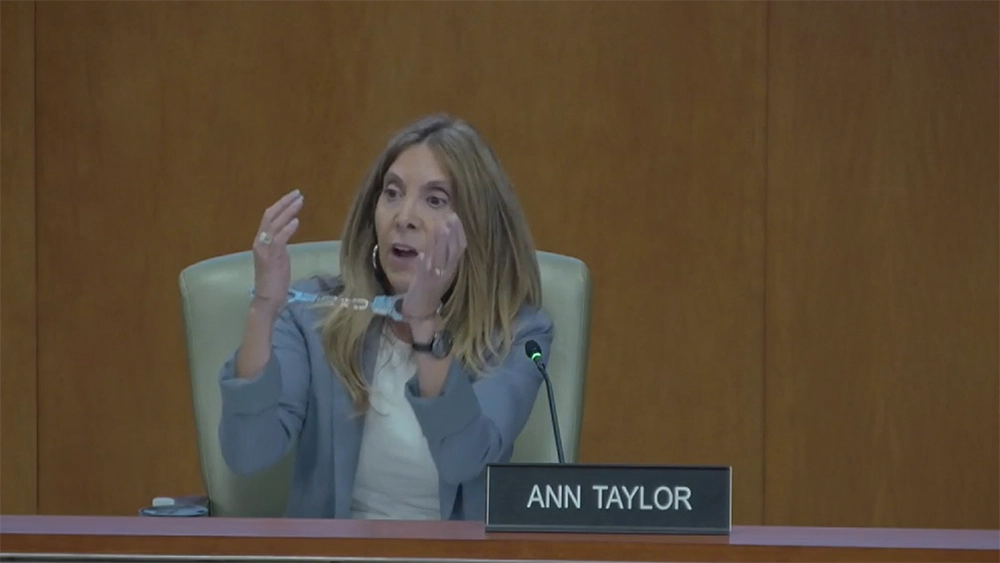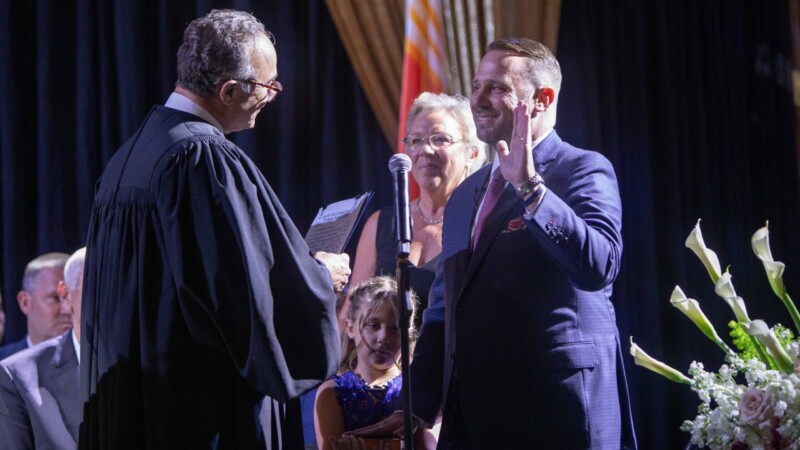It’s billed as a way to make hurricane cleanup smoother, but municipalities across Florida are challenging a law that was approved by a near-unanimous vote of Florida’s lawmakers earlier this year.
The First Coast is feeling the effects, too, as the state recently told St. Johns County its local development rules violate the new rules.
It’s all part of what elected officials and environmentalists from across Florida say is evidence that the law created by Senate Bill 180 is eroding local authority.
Development, home rule and you
SB 180 specifically targets any guideline or plan that makes it more “restrictive or burdensome” to build in counties affected by hurricanes. The rule applies to future hurricanes that hit the state, but also retroactively to last year’s hurricane season.
Because of the size of hurricanes Milton, Debby and Helene, more than 40 of Florida’s 67 counties must follow the new guidelines, meaning development plans approved from last year forward will be under strict scrutiny from the state for the next several years.
Critics of the new law point out that the charge of “restrictive and burdensome” has been levied at more than just projects affected by hurricane recovery.
Earlier this year, elected officials in Manatee County ran afoul of the new guidelines when considering stricter protections for wetlands — that county is now suing the state. Locally, St. Johns County tripped SB 180’s new restrictions when the county tried to adopt a new comprehensive plan.
The county’s comprehensive plan is a development document with strategies and guidelines for how a county should grow. The St. Johns County Commission spent months and thousands of dollars hashing out the finer points of the new plan, which includes provisions like minimizing “the filling and destruction of wetlands,” promoting “green building practices” and promoting the development of affordable and workforce housing.
READ MORE: Florida growth law draws another legal challenge
During debates about other development guidelines this summer, like stricter tree regulations, some county commissioners expressed concern that making developers follow new tree protections could also violate the new law.
During the Board of County Commissioners meeting Oct. 7, County Commissioner Ann Taylor — wearing a pair of handcuffs to drive home her point — said the state’s decision to reject the plan was an example of the new rules “literally handcuffing our county.”
“Our residents are losing their local voice on important decisions,” Taylor told the rest of the County Commission.
Taylor failed to garner support for a letter to DeSantis urging him to veto the law earlier this year. So she proposed that St. Johns County join more than 20 other municipalities and two counties that are suing the state over the law.
As earlier this year, she got lukewarm support from her colleagues.
County Commissioners Christian Whitehurst, Sarah Arnold and Clay Murphy expressed that a legal battle was not the most efficient way to push back against the rules. Instead, they preferred to continue speaking with their elected representatives who supported the law in the Legislature.
“We can ask of our legislative delegation — Rep. (Judson) Sapp, Rep. (Sam) Greco, Rep. (Kim) Kendall — ‘Can y’all work together with us to file a bill to repeal this law?’” Whitehurst said. “I have no desire to join a lawsuit.”
Jacksonville Today reached out to St. Johns County lawmakers Kendall and Sen. Tom Leek, both of whom voted in support of SB 180. Neither could be reached for comment.
Fighting for home rule
At least one Northeast Florida organization is taking the fight to Tallahassee, and that’s the Matanzas Riverkeeper.
Executive Director Jen Lomberk signed onto a letter with more than 30 other organizations from across the state like 1000 Friends of Florida, Audubon Florida and Sierra Club Florida opposing provisions of the development law. In addition to the letter, 1000 Friends of Florida also has filed a lawsuit against the state.
Lomberk and the other organizations take issue with a narrow piece that was removed and then added back to the bill just before it was adopted by legislators — the piece that targets actions by local governments.
Lomberk says that the bill had good intentions but that an addition by Tampa Bay-area Sen. Nick DiCeglie changed things.
“This 11th-hour amendment was tacked on that just created all of these unintended consequences without the benefit of going through the entire legislative process, without the benefit of being heard by the different committee stops and being discussed by our legislators,” Lomberk said. “The fact that that was the mechanism by which this happened is just incredibly problematic.”
DiCeglie said during legislative deliberations about the bill that the goal of the addition was to prevent local governments from getting in the way of disaster recovery.
As the head of an environmental organization, Lomberk said it’s critical that local governments are able to call the shots in their own backyard.
“This really undermines land use planning, and so I am extremely happy that all of these municipalities have stepped up and signed on to that lawsuit,” she said. “I’m not surprised that St. John’s County hasn’t, but I’m disappointed.”
The St. Johns County Commission is expected to discuss the next steps for the county’s comprehensive plan and reactions to the state’s rejection during the board’s next meeting, which will be Oct. 21.







